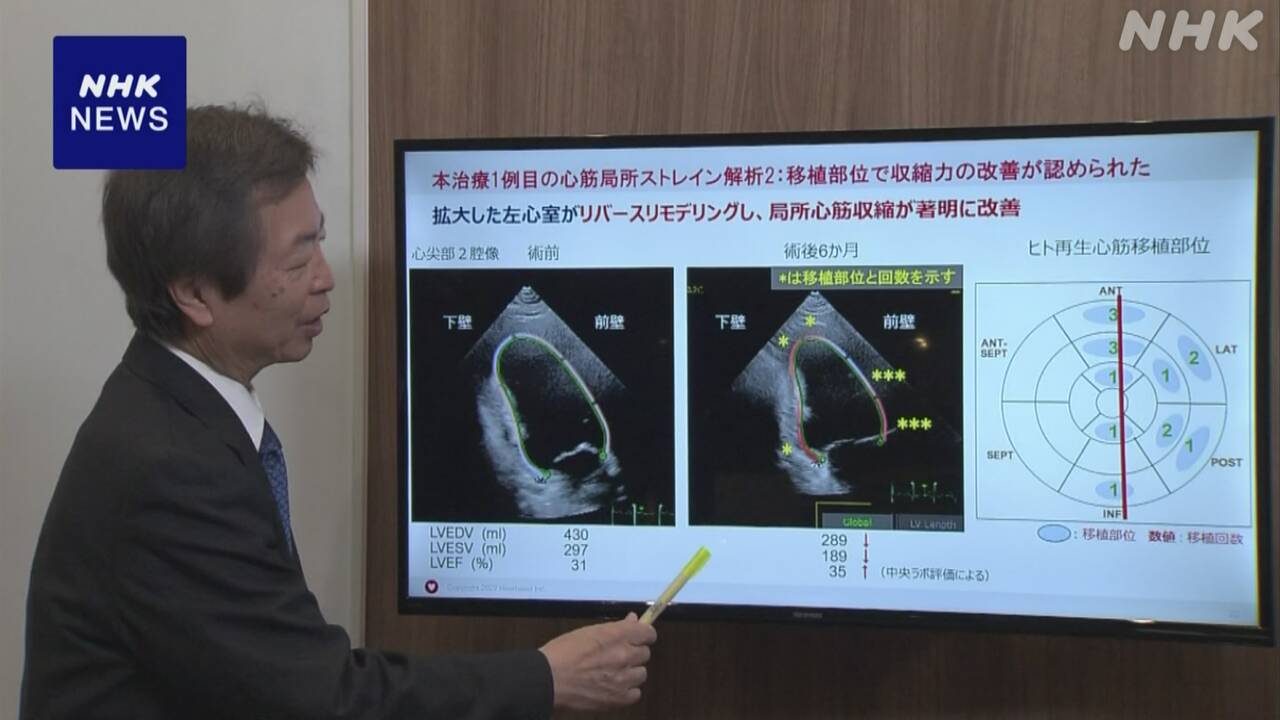Groups such as a venture launched by researchers at Keio University, which is conducting clinical trials to transplant small chunks of heart muscle cells made from iPS cells into patients with heart disease, have discovered that the movement of the hearts of transplanted patients is consistent. We have summarized the latest progress, including improvements in symptoms.
This was put together by groups such as Heartseed, a medical venture founded by Keiichi Fukuda, a professor emeritus at Keio University.
In this clinical trial, when patients with severe heart failure undergo heart bypass surgery, "cardiomyospheres" made from iPS cells and made into small spheres of heart muscle cells are transplanted into the heart by injection. A person is undergoing a transplant.
According to the group, a detailed analysis of the heart movements of three patients more than six months after the transplant using MRI images revealed that in all patients, the heart contracted more rapidly around the site where the cells were transplanted than before the transplant. It means that it was.
Additionally, in one patient, hormone levels, which rise when heart function deteriorates, improved even after the first month after bypass surgery, when the effects of bypass surgery are usually seen, for about 8 months. Later, it had fallen to about one-third.
No rejection reactions or major side effects have been observed.
The president of the venture and professor emeritus of Keio University, Fukuda, said, ``It is important to scientifically analyze and develop this treatment method.The first step has started smoothly.''

